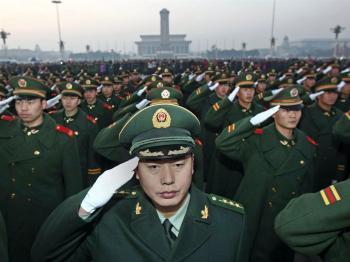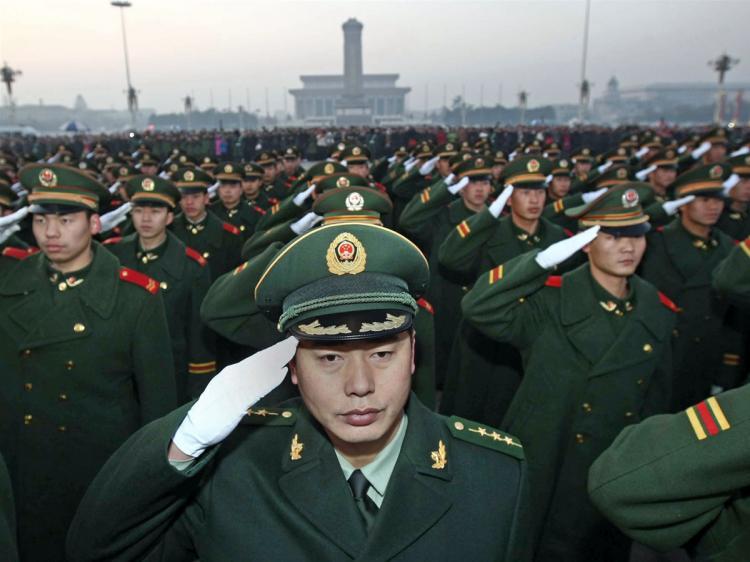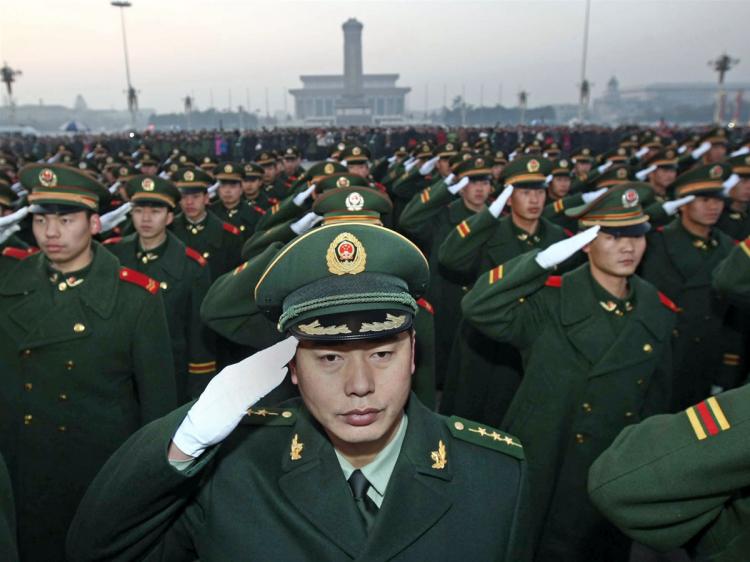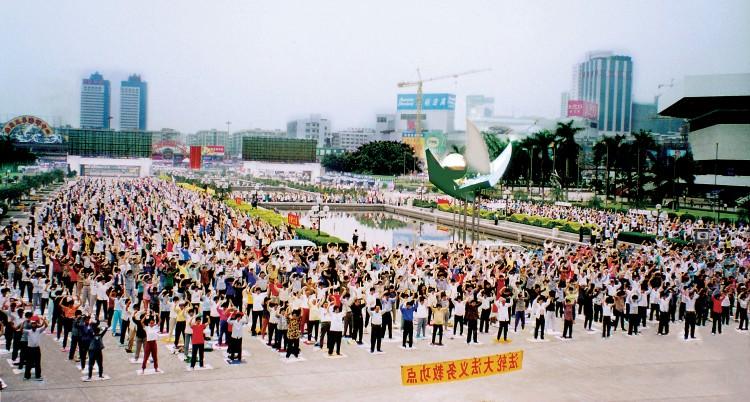Chinese communist leaders faced a dangerous challenge in 1989 and soon after as revolutions in the communist countries of Eastern Europe caused those regimes to collapse, while the Berlin Wall fell, and the Soviet Union disintegrated.
As the Chinese Communist Party hoped to avoid the same fate, research grants were given to academic institutions to study why the communist parties had lost control. Books and reports from the research were published in large quantities, with a spectrum of views and analyses. A documentary film was made to summarize the conclusions of the research in 2006. It was named “When Residing in Peace, Think About Danger” (ju an si wei).
Abadonment of Marxism-Leninism
The film systematically reviews the history of the Communist Party of the Soviet Union. It describes the Soviet Union as a great socialist country that had brought hope to the world. It describes Lenin as a great leader, a visionary, and a loving man who devoted his life to communism. It claims that Stalin was still a great communist and world leader despite some mistakes he made. And it says that it was Khrushchev’s anti-Stalin campaign that led to a rejection of the basic principles of Marxism and socialism, bringing about “severe consequences.”
The film argues: “It should be especially noted that Gorbachev’s fundamentally replacing Marxism-Leninism and socialism under the banner of ‘humane, democratic socialism’ is more deceptive, and therefore more dangerous, than Yeltsin’s undisguised advocacy of capitalism. Having lost the theoretical basis of Marxism-Leninism, the Soviet Union’s collapse was inevitable.”
Loss of Control of Media and Ideology
The film detailed how books and journals on democracy, and criticisms of communism and government performance were allowed to be published, and how radio and television were accessible to people who were anti-communists. It concluded that “For a ruling Marxist and Leninist party, forceful work in the area of people’s thoughts and ideology is the ideal, resolve and bugle in leading its party and the people to stride forward in lockstep by maintaining cohesion between the Party and the people. When its bugle was taken away, when its ideal and resolve were destroyed, how could the Party continue to exist?”
Poor Governance and Leadership
The film adulates Lenin as “accessible to the people,” known for his hard work for the Party and the country; Stalin is similarly portrayed as skillful, and determined to keep the nation under the tight control of communism. Gorbachev, however, “not only destroyed the Party’s cohesive force but also led to the collapse of its base.” The film says the relationship between the Party and the people was as tense as it had ever been, economic conditions had deteriorated, and that conflicts among ethnic groups had grown acute. Under Gorbachev, the people had lost their trust in the Party, with millions of resignations from the CPSU.
Corruption
Corruption had grown out of control by the time Brezhnev came to power in 1968. Children of the privileged class gained easy access to the best universities, and entered the most privileged sectors after graduation. Such positions became a shield for corruption.
The film points out that “there are serious violations of Leninist principles in the selection and employment of cadres. The administrative leading cadres are not appointed according to their capability and moral character, but behind the scenes, through acquaintances and family relations, based on whether the person is personally loyal to individual superiors.”
To protect vested interests, the privileged class was opposed to any changes that would compromise their position. This included dealing with corruption with the party and the society as a whole. “The privileged class seriously damaged the reputation of socialism, created social gaps, and ruined social morality,” the documentary says. The gap between ordinary people and the privileged classes widened.
A poll conducted at the time showed that 85 percent of the population believed the CPSU represented only the interests of bureaucrats, cadres, and government officials.
Flawed Leader Selection
The film says that “Democratic Centralism” was abandoned when selecting cadres, and nepotism became the order of the day. “The tendency of intentionally developing loyal cadres and forming factions was quite popular. In Brezhnev’s period, when considering whether a cadre could be promoted, the primary condition was not the person.”
Gorbachev was accused of exaggerating the dark side of the Party, skillfully setting up various titles to appoint people by favoritism, and making major personnel changes. “He especially replaced the cadres opposing his so-called ‘reform,’ with the cadres who supported his indiscriminate Westernization. … In a short several years, 92.5 percent of the Party secretaries of the 150 border areas, states, and municipalities were replaced.”
The film argues that Gorbachev’s “wrong” cadre policy created “unprecedented ideological chaos in the CPSU, the government, and among army cadres.” It was said to have enormously damaged the Party’s prestige, and so damaged the core leadership’s relationship with the CPSU’s other organs that “decisions could not reach outside the Kremlin.”
Using a vocabulary saturated with Marxist theory and terms, the film argued that the alleged betrayal of leaders like Yeltsin and Gorbachev caused the destruction of the Party.
The Doctrine of ‘Peaceful Evolution’
While most of Western experts and leaders were shocked by the sudden fall of the communist camp, the film gives major credit to the so-called “peaceful evolution” doctrine employed by former U.S. president Richard Nixon’s promotion of the Western values of freedom, democracy, and human rights, focused on individual interest to contend with Marxist ideology. President Ronald Reagan’s remarks in 1991 in London that “the final determining factor is not nuclear bombs or missiles, but the battle of wills and ideas,” were also noted in the film, along with his vow to “relegate Marxism to the garbage heap of history.”
“The first approach of the Westernization and disintegrating strategy adopted by the U.S. and other Western countries against the Soviet Union was: using mass media to conduct ideological infiltration,” the film said. “The U.S. set up large radio stations in six languages, promoting Western society’s ‘achievements,’ lifestyle, and value system. The British Broadcasting Company (BBC) and Deutsche Welle also broadcast to the world in 40 and 35 languages, respectively.”
It accused Western countries of using human rights issues to interfere, and of cultivating anti-communist forces inside the CPSU. It claimed that “The U.S. government even linked ‘human rights diplomacy’ to ideological and political infiltration, openly using human rights issues to pressure socialist countries. After the Helsinki Accords were signed in 1975, Western countries used its stipulations to provide support to ‘political dissidents’ in the Soviet Union. The support included material and monetary support, and also ‘honor’ or ‘moral’ support.”
The Dilemma of the Research
There are several conclusions that can be drawn from the research. The first is, from the perspective of the filmmaker, the difficulty of accurately evaluating the rule of Soviet leaders like Lenin and Stalin was impeded by the use of propaganda from the CPSU and CCP itself, which the research could not and dared not question. Second, it is the nature of communist rule that led to the departure of Party members and leaders who could no longer put up with the inhumane practices of the ruling Party. Third, it is the lack of check and balance, and the one-party dictatorship that caused nepotism and corruption, which became uncontrollable. As many Chinese say today: “If we fight corruption, the Party will fall; if we do not fight corruption, the nation will perish.” The question is, if the CCP is the problem, how can it be a solution?






